All products featured are independently chosen by us. However, SoundGuys may receive a commission on orders placed through its retail links. See our ethics statement.
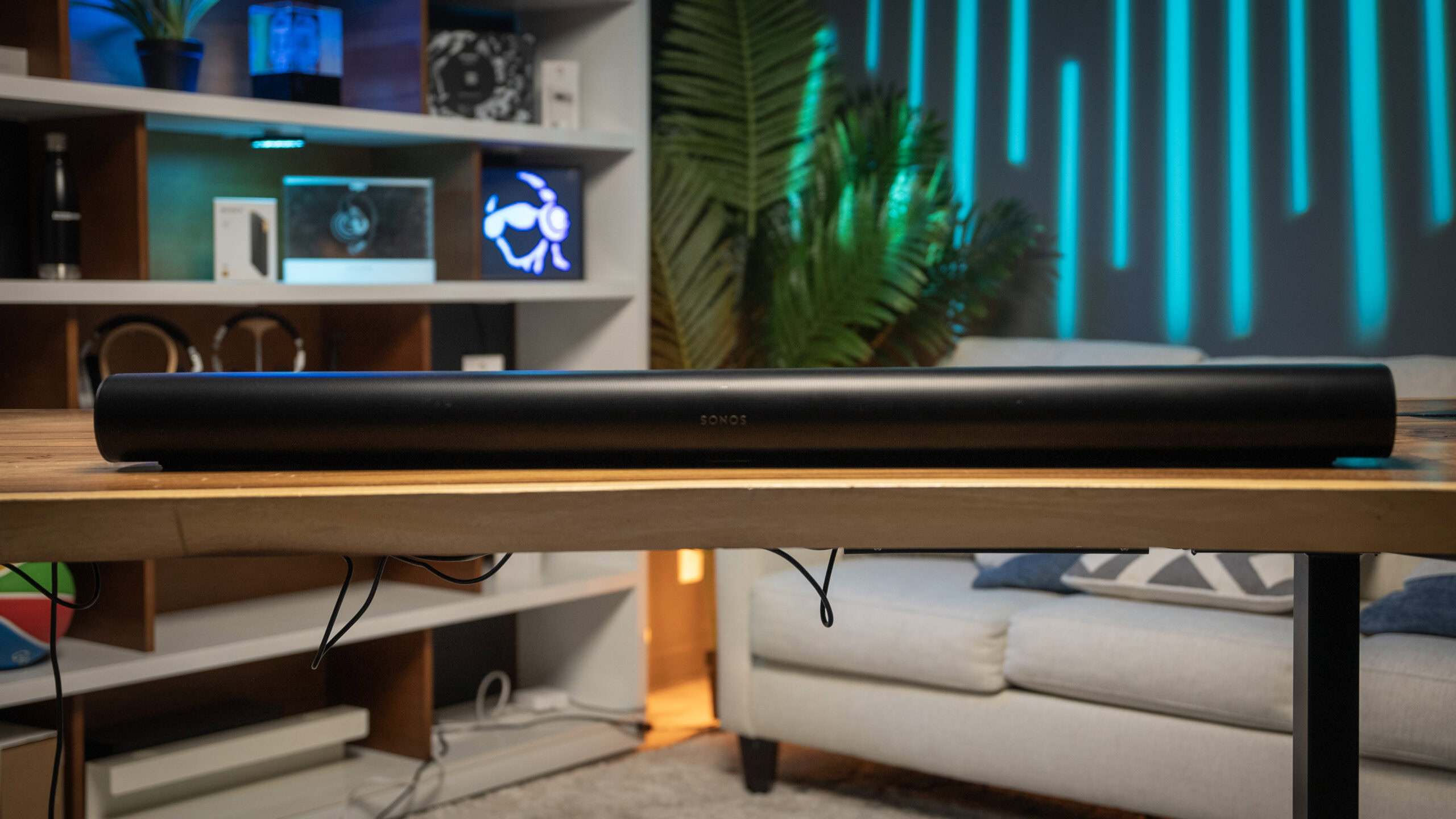
Sonos Arc review
Published onMarch 21, 2025
Sonos Arc
Sonos vies to be at the center of your next home theater setup with its flagship soundbar: the Sonos Arc. It has plenty of high-end features, including an eleven-driver setup, Dolby Atmos support, and powerful app features. But for $899, does the Arc have what it takes to take center stage for your next movie marathon, or should you set your sights on a different soundbar?
What you need to know about the Sonos Arc

The Sonos Arc packs a lot into a relatively small package. It boasts eight woofers and three tweeters underneath a sleek, perforated plastic housing. All these speakers make for quite a hefty package, which makes the soundbar a little unwieldy to carry during setup. However, once placed on your TV stand — or mounted to your wall — the Sonos Arc’s understated design will blend seamlessly with your home theater setup.
You can control the soundbar using the touch controls located on the top of the Arc. The center button controls play/pause, while the right and left buttons control volume. A microphone is also located on the right side of the soundbar, enabling voice control. Soundbar controls can also be accessed using the Sonos app.
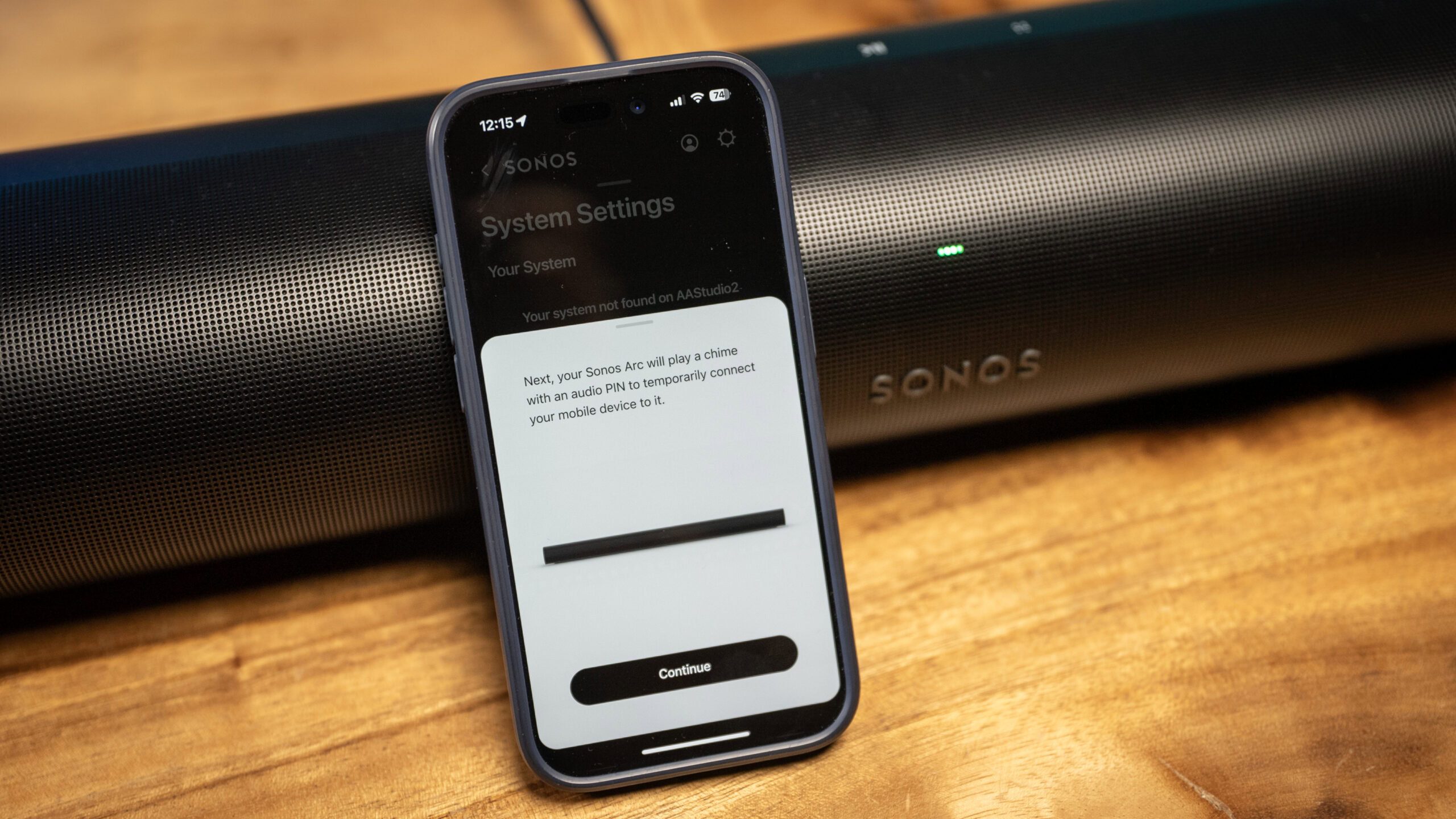
Setting up the Sonos Arc is simple. All you have to do is plug in the power cable, connect the soundbar to your TV’s HDMI eARC port, and download the Sonos app on your iPhone or Android device. Follow the in-app prompts to connect your soundbar to WiFi, and you’ll be all set to stream your favorite shows or songs.
Besides WiFi, you can stream content through the Sonos Arc in several ways. You can connect the soundbar to your home router using the Ethernet jack on the back of the speaker—a great way to ensure a stable connection. The Sonos Ace also supports Apple AirPlay 2 and works with Amazon Alexa and Google Assistant. This makes it very easy to queue up content from your Apple device or a Google or Alexa-supported platform.
What I like about the Sonos Arc
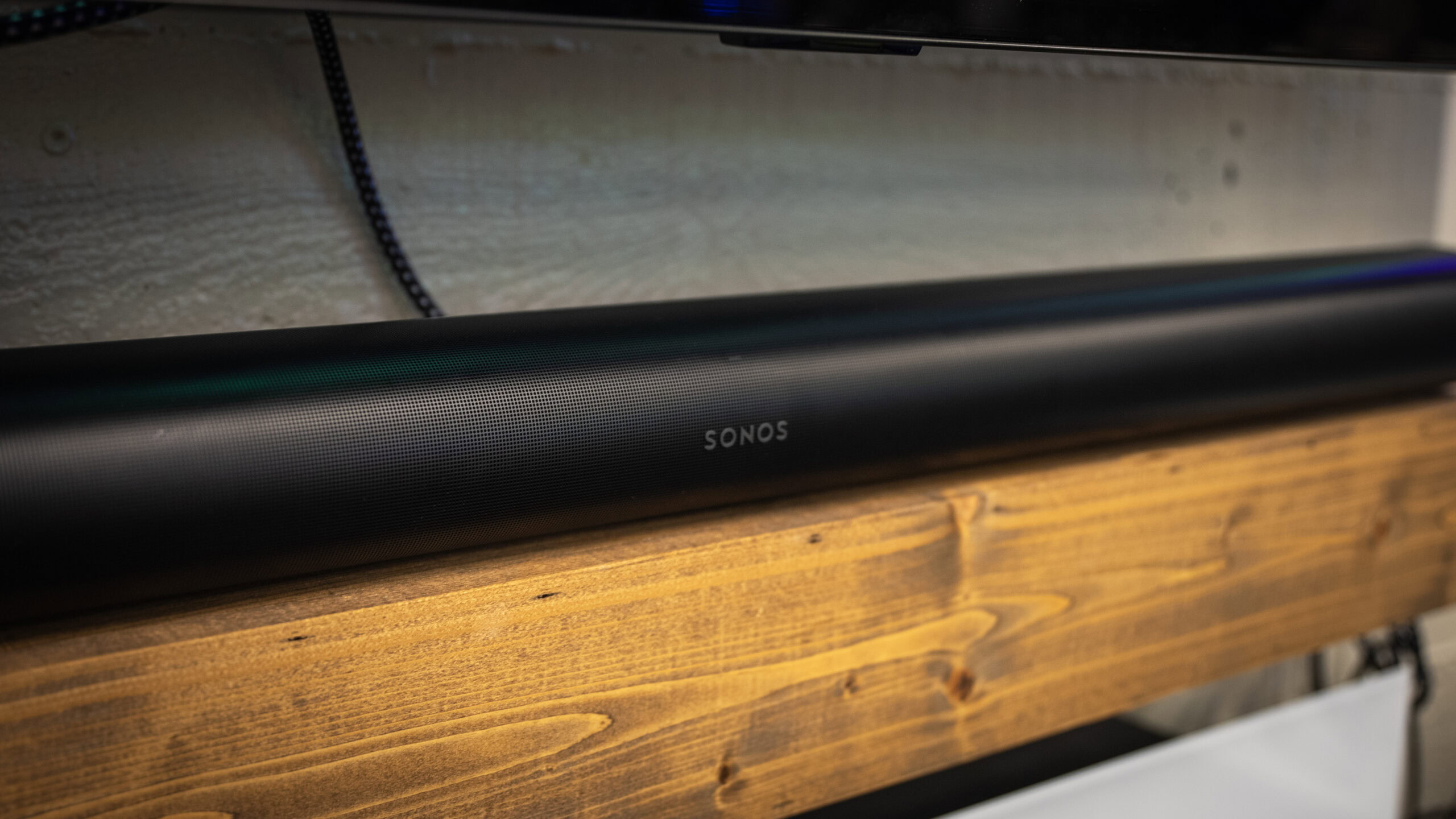
The sound quality of the Sonos Arc is very good. In dialogue-intensive shows like “Bridgerton”, voices sound clear, and I never felt like the musical score masked any character’s vocals. Speaking of which, strings, brass, and woodwinds from the score also sound very detailed, and the soundbar’s good localizability helps me discern the placement of each instrument. I also watched some action-heavy films like “Top Gun: Maverick”, which does a good job of showcasing the soundbar’s ability to produce a wide stereo image. The sound of jets panning from hard left to right is very apparent on the Sonos Arc; it almost sounds like I have surround-channel speakers.
In order to get the best sound quality out of the Sonos Arc, it’s important to set up the company’s Trueplay feature, which can be found in the Sonos iOS app. Trueplay uses the microphones on your iOS device while the soundbar plays a series of audio sweeps. The Sonos app analyzes these recordings to optimize the soundbar’s EQ to suit your listening environment best. The in-app instructions are easy to follow, and I completed the process in less than five minutes.
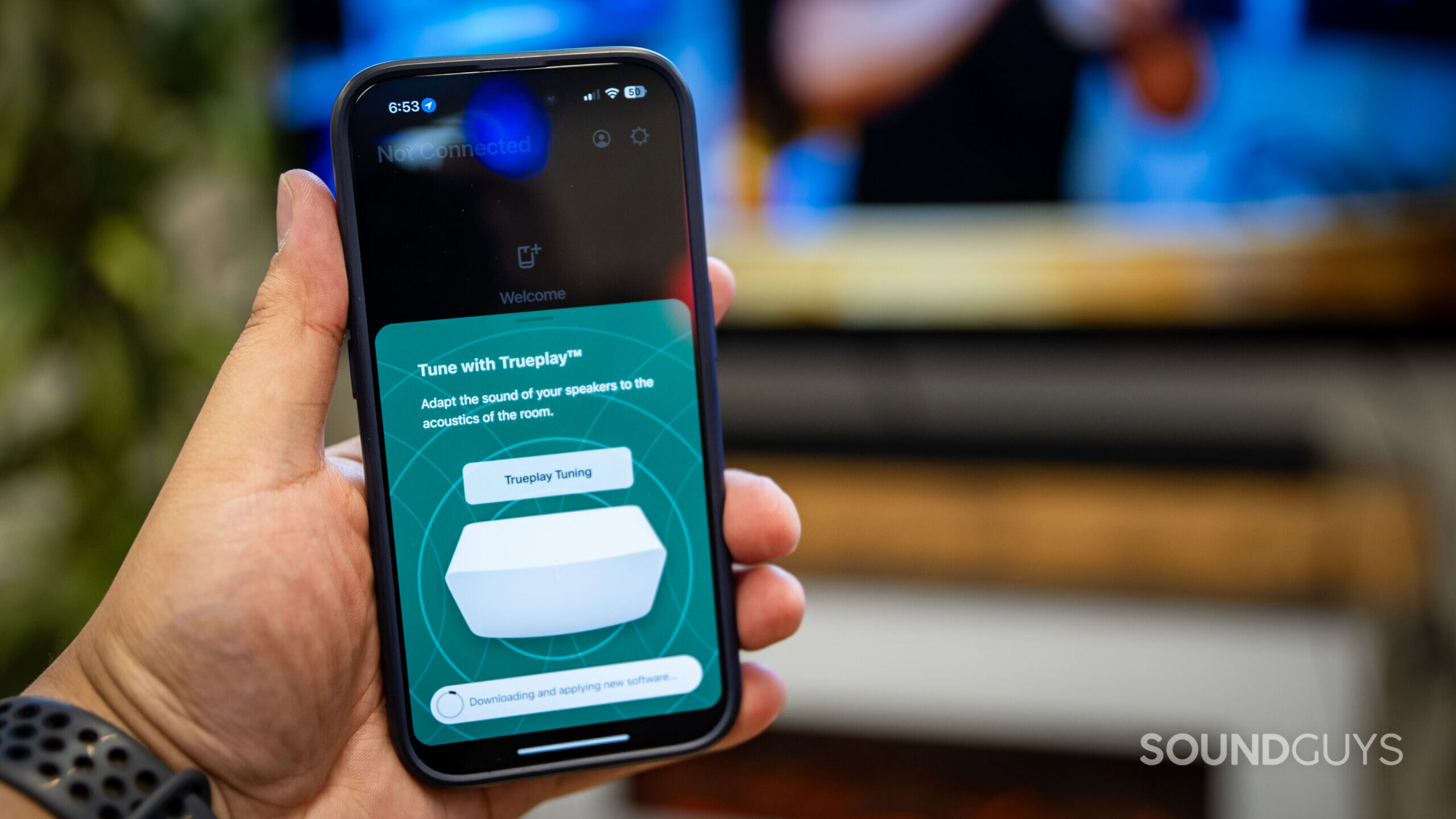
I am also surprised with just how much bass the Sonos Arc produces without a separate subwoofer. Explosions, jet fly-bys, and the thump of a timpani come through loud and clear. In fact, I was almost afraid my neighbor would come knocking to complain. The loud bass reproduction is partly because my TV room is quite small. This means that bass build is usually an issue. Fortunately, the Trueplay room correction process likely recognized this and adjusted the EQ of the soundbar to compensate for my space. While the amount of bass coming out of the Sonos Arc was fine for my space, people with larger home theater rooms may still crave a more pronounced low-end produced by a dedicated subwoofer.
If you own the Sonos Ace headphones, you can also set up TV Audio Swap with your iOS device. This feature allows you to transfer audio from your Sonos soundbar to your headphones by holding down the Content Key on the Sonos Ace. I found this feature to work very well, and it only took about three seconds for the audio swap to occur. It is truly a seamless audio-switching experience.
What I don’t like about the Sonos Arc
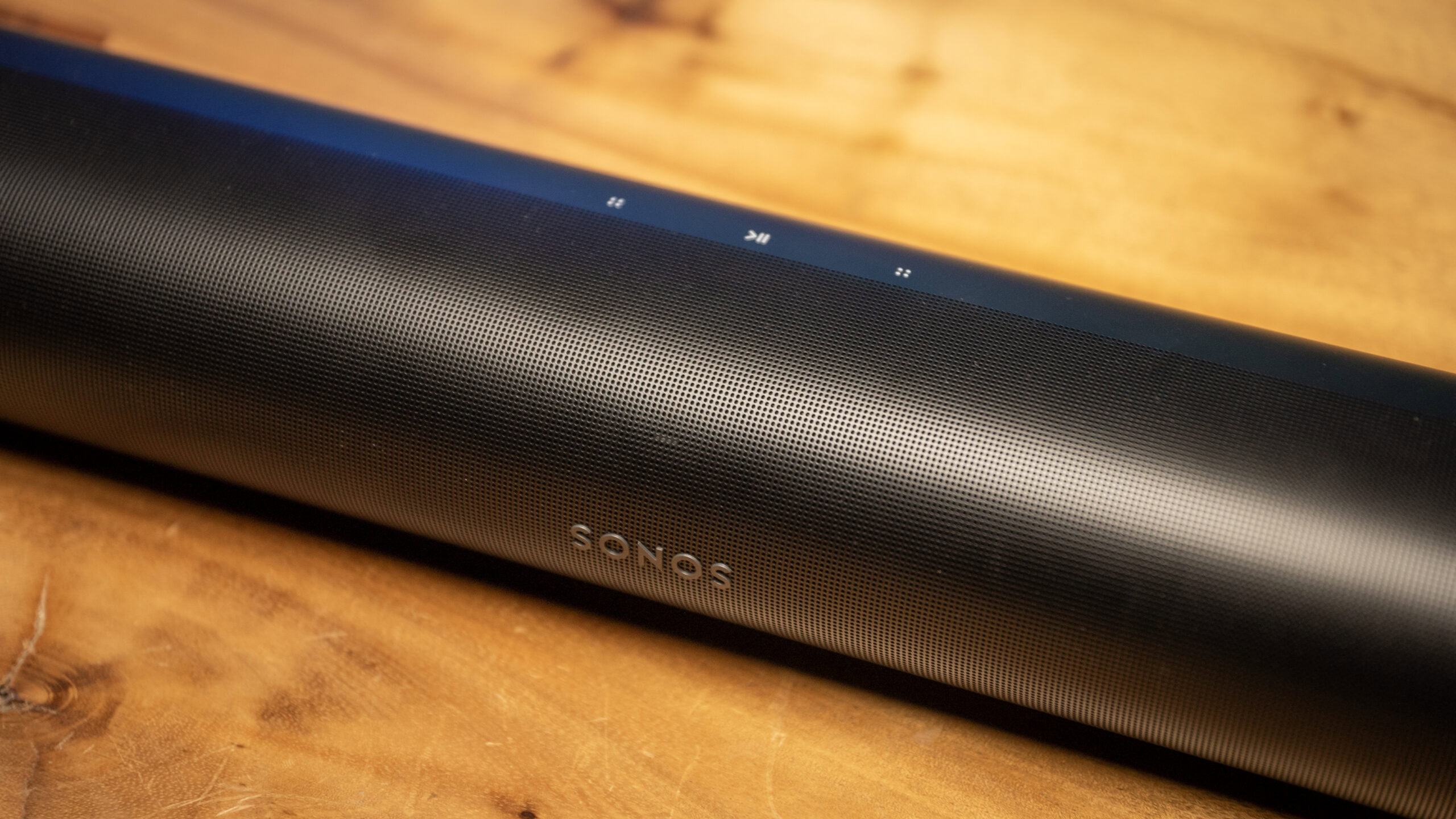
While the Sonos Arc sounds great for watching movies and TV shows, I didn’t find the listening experience to be as immersive as Sonos claims. The Sonos Ace supports Dolby Atmos, and the soundbar is equipped with upward-firing drivers to make sounds appear as if its coming from ceiling speakers. Unfortunately, this effect wasn’t very apparent to me. Also, while I praise the Sonos Arc for producing a wide stereo image, I still craved the sense of immersion I felt with dedicated rear speakers. If you want a more immersive Sonos speaker setup, consider adding a pair of the Era 100 or Era 300 speakers as side/rear channels, plus the Sub (Gen 3) for added low-end reproduction.
The Sonos Arc is a tough sell for one class of consumers: Android users. Several key app features, including TV Audio Swap and Truplay room correction, only work with iOS. It’s possible that Sonos could release an update to unlock these features for Android users. For now, however, if you own an Android phone and are considering buying the Sonos Arc, you may need to borrow your buddy’s iPhone to get the most out of your soundbar.
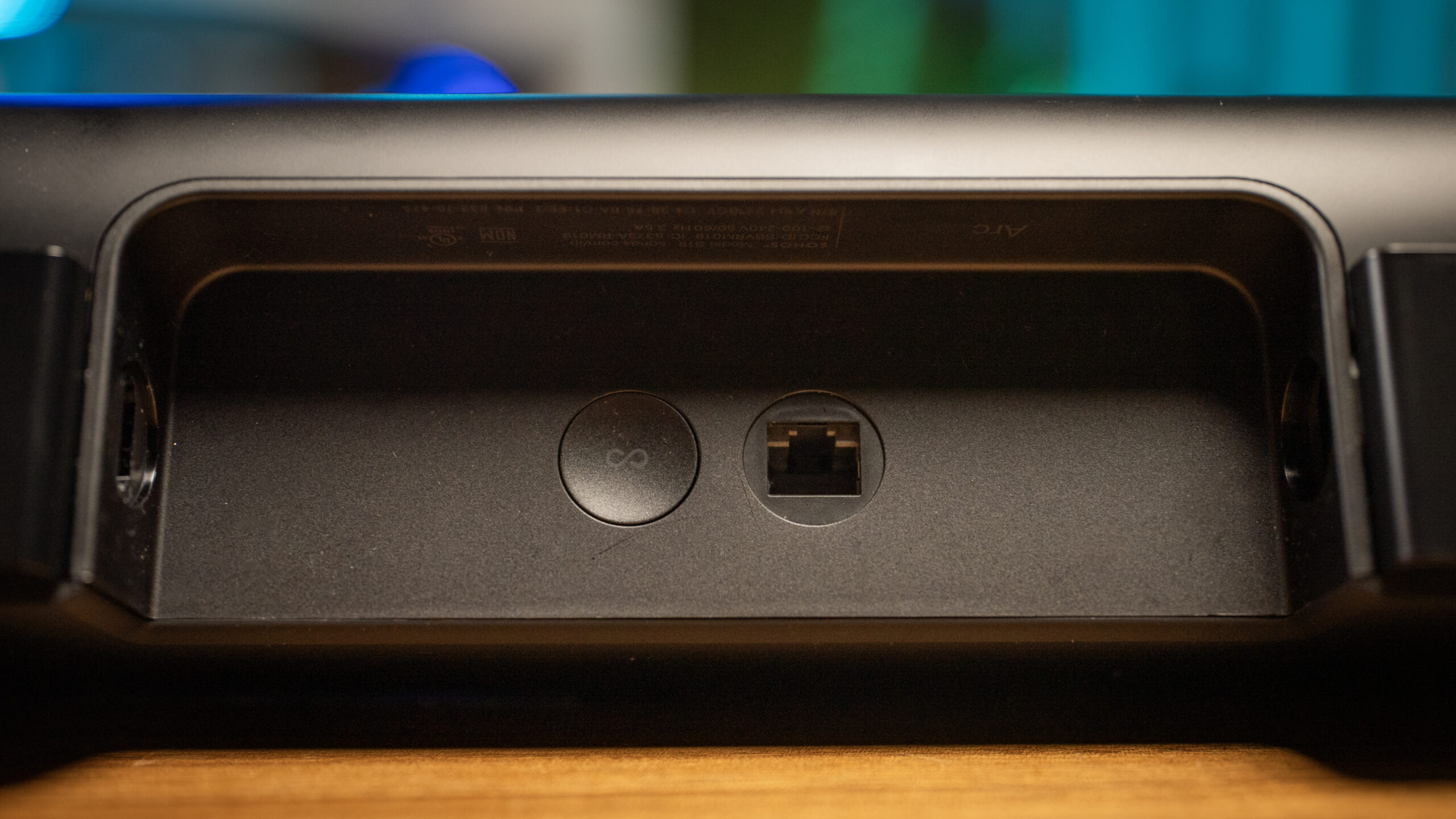
To rub more salt in the wound, the Sonos Arc also lacks Bluetooth connectivity. This means that if a guest wants to stream music directly from their Android device, they can’t. Instead, they’ll have to queue up songs using Alexa or Google Assistant or stream music through a connected TV or Apple device. It’s worth noting that you can send Bluetooth audio to the Sonos Arc, though you’ll need another Bluetooth-enabled Sonos device in your home.
Sonos Arc specs
| Sonos Arc | |
|---|---|
Size | 87 x 1,142 x 116 mm |
Weight | 6.25 kg |
Channels | 5.0.2 |
Audio specs | Tweeter: silk-dome, 3 Midrange: eliptical, 8 |
Audio/video inputs | HDMI ARC/eARC |
Supported audio formats | Dolby Atmos True HD MAT Dolby Digital Plus Dolby Digital |
Wireless/wired audio connection | WiFi (2.4GHz) Ethernet (10/100) Apple AirPlay 2 Amazon Alexa Google Assistant |
App | Sonos app (iOS/Android) |
Controls | Soundbar: touch (play/pause, volume) |
Price | $899 |
Should you buy the Sonos Arc?
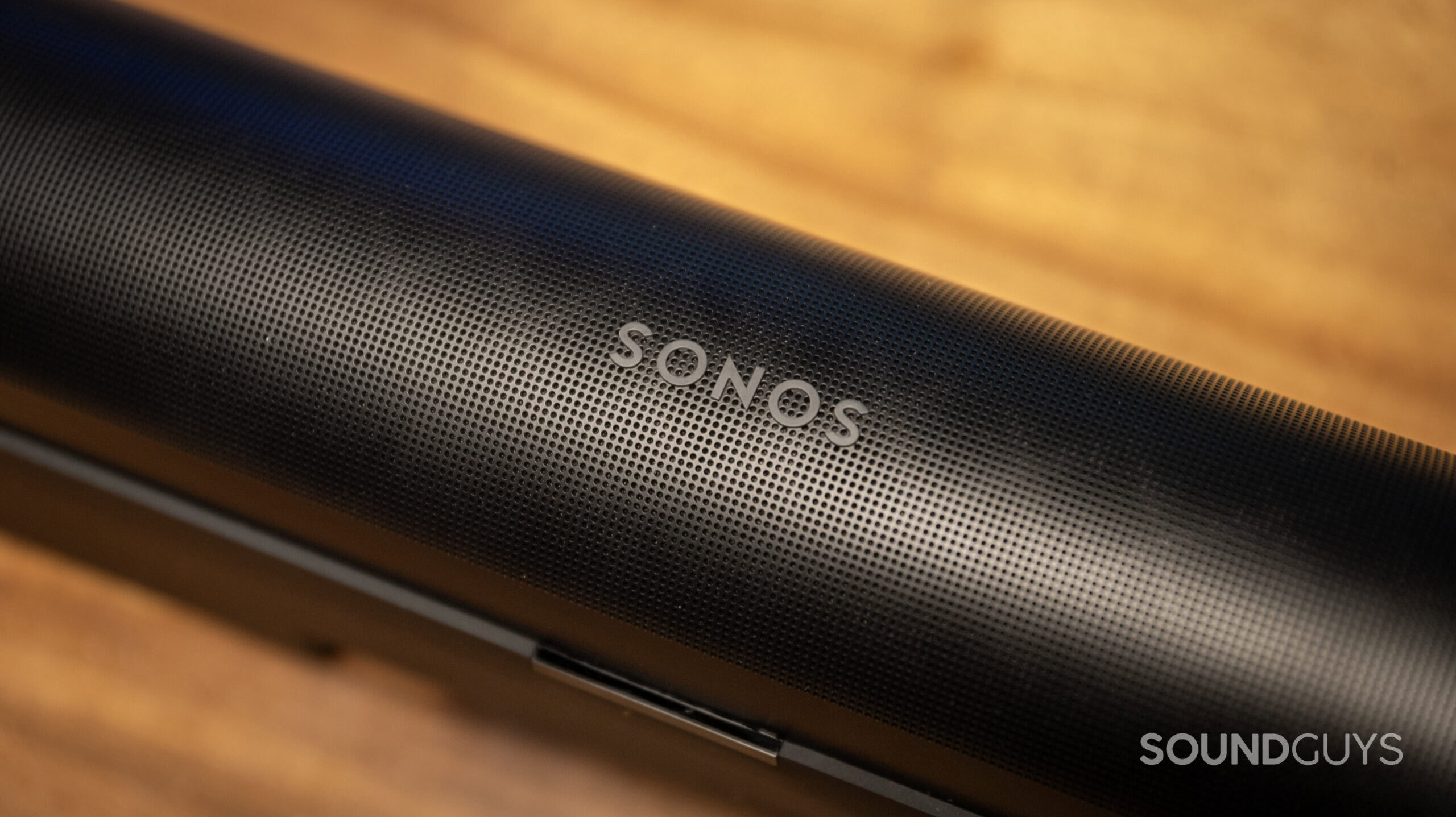
I’d recommend the Sonos Arc to anyone willing to fork up the cash for a good overall soundbar. It sounds great, it’s easy to set up, and yes, it looks great, too. Its $899 price tag may be a hard pill to swallow for some, but it’s a fair price to pay for a well-designed soundbar—especially if said soundbar is poised to be the center of your home theater.
However, if you’re after full-on immersive listening or simply enjoy immersive formats like Dolby Atmos, I’d recommend keeping your money and saving for a proper Dolby Atmos setup. Dedicated surround speakers and a subwoofer provide the most immersive experience possible. But if you’re dead set on having a soundbar as the centerpiece of your Dolby Atmos home theater system, then the Sonos Arc is a good starting point.
If you’re an Android user, I recommend waiting a bit longer for Sonos to expand compatibility for some app features. But if you’re impatient, then I’d say it’s worth bugging your iPhone-loving friends to help you get the most out of the Sonos Arc.
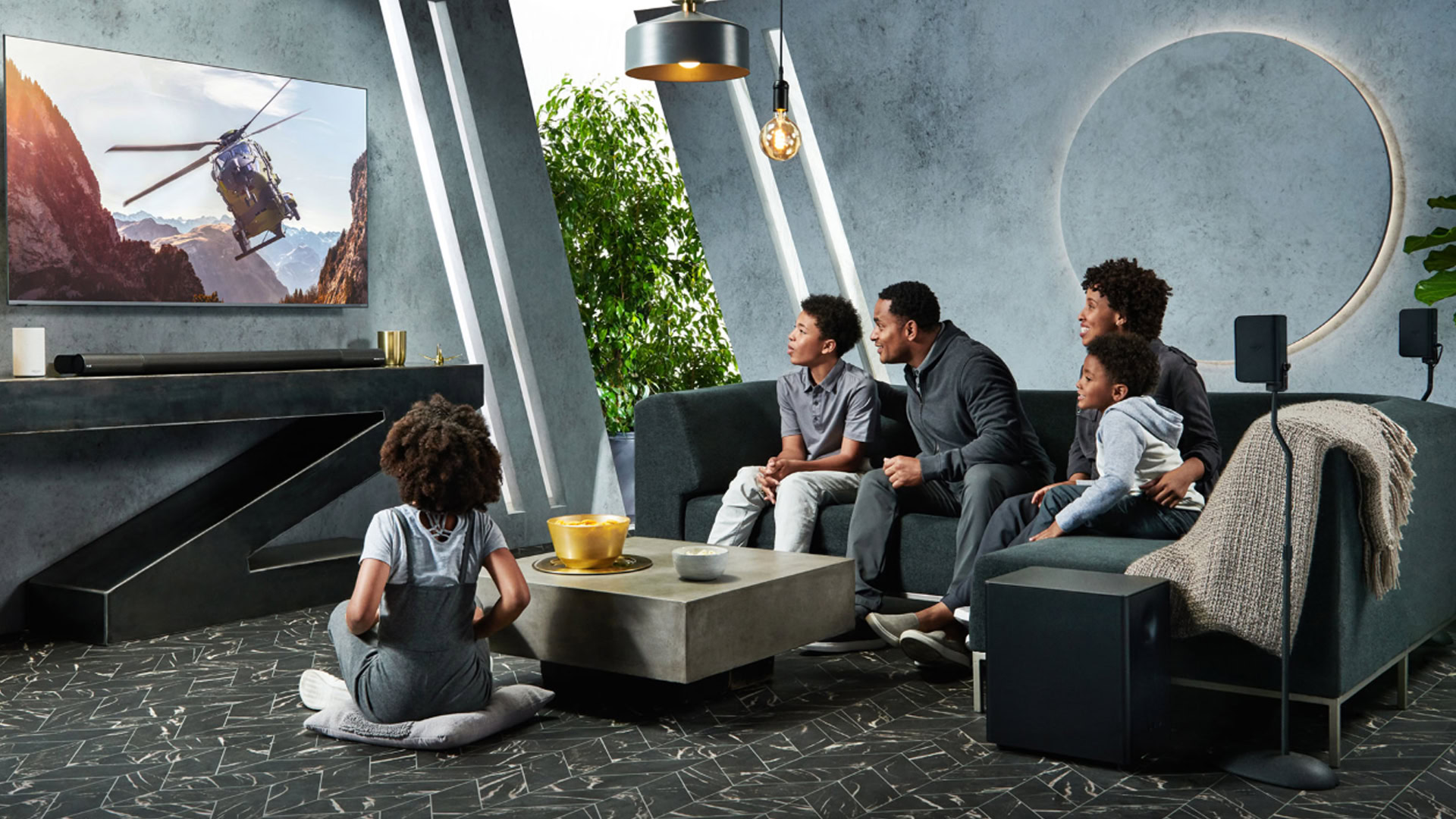
For those looking to save a bit of cash, check out the VIZIO Elevate Soundbar. For $799.99, Vizio offers a 5.1.4 surround setup with a dedicated subwoofer and surround speakers. The soundbar also features upward-firing speakers, similar to the Sonos Arc, which is especially useful when listening to songs or watching films mixed in Dolby Atmos.

Sonos Arc review: FAQs
No, the Sonos Arc does not have Bluetooth.
No, the Sonos Arc does not come with a remote.
Yes, the Sonos Arc comes with an HDMI cable in the box.
No, the Sonos Arc does not come with a wall mount. It’s available for purchase separately on the Sonos website.
If your TV doesn’t have HDMI ARC/eARC, you’ll need to purchase the Sonos Optical Audio Adapter to connect the Sonos Arc to your TV’s optical audio port.